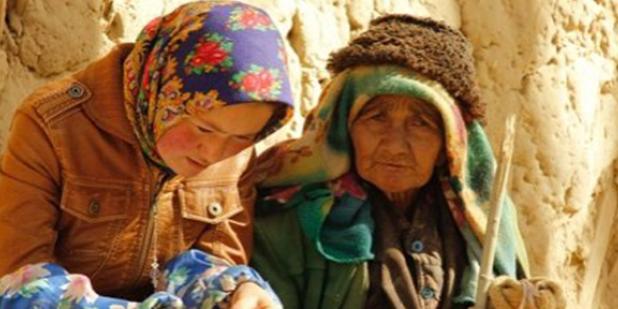Join us for a free one-day workshop for educators at the Japanese American National Museum, hosted by the USC U.S.-China Institute and the National Consortium for Teaching about Asia. This workshop will include a guided tour of the beloved exhibition Common Ground: The Heart of Community, slated to close permanently in January 2025. Following the tour, learn strategies for engaging students in the primary source artifacts, images, and documents found in JANM’s vast collection and discover classroom-ready resources to support teaching and learning about the Japanese American experience.
“Qarangghu Tagh: The Villages Afar” Film Screening Columbia
Colombia University Weatherhead Institute hosts a screening of the film "Qarangghu Tagh: The Villages Afar," the first independent Uighur documentary.
Where

“Qarangghu Tagh: The Villages Afar”
Saipulla Mutalip, Film Director
Jessica Yeung, Film Producer
Moderated by Robbie Barnett, Director, Modern Tibetan Studies Program, Columbia University
No registration required.
Co-Sponsored by the Modern Tibetan Studies Program and the Inner Asia Curricular Development Program at Columbia University
Qarangghu Tagh: The Villages Afar
(Saipulla Mutallip, 2014, Hong Kong, 70 min, in Uyghur w/ English subtitles, Color, DVD)
This is the first known independent Uyghur documentary for public screening by a native Uyghur film maker about Xinjiang entirely without government background or involvement.
Qarangghu Tagh is an impoverished mountain area near Khotan in the southernmost part of Xinjiang. The villages are situated on high mountains at altitudes above 3000m. The area is so remote that it has no road connecting it to the world outside. Even to this day, the only access to Qarangghu Tagh is a long, narrow and meandering mountain path that takes 8-9 hours on donkey back, or 3-4 hours by motorbike to get through. One might expect such a self-subsistent community so isolated from the rest of the world to be left in peace.
However, history of the larger world has not left Qarangghu Tagh alone. In 1934 the army led by the Tonggan (Hui) warlord Ma Hushan was defeated in battles fought out in Xinjiang by the army of Sheng Shicai, the Han warlord from Liaoning Province recognized by the Kuomintang. Ma’s soldiers retreated to Khotan and inaugurated four years’ of brutal rule in Khotan. The people of Khotan were subjected to atrocious killing and looting. Some of Ma’s soldiers went up the mountain to Qarangghu Tagh and committed a massacre in one of the villages. This event that destroyed the world of the ordinary people of Qarangghu Tagh is not written down in any historical records, but the people of Qarangghu Tagh have remembered it in a folk song that everybody in the village can sing.
During the 1934 massacre, the unfeigned and mild folks of Qarangghu Tagh did not put up any resistance because the simple lives of rural living had not occasioned the training of strong leaders. Today, after more than half a century, education in the village is still barely existing.
The director-cinematographer of Qarangghu Tagh is a native Uyghur of Xinjiang. He travelled to Qarangghu Tagh for the first time in 2009 to observe the people’s way of life. It was in that trip when he first heard villagers sing the folk song about the 1934 massacre. Then he started to research on that incident and returned to Qarangghu Tagh multiple times between 2009 and December 2012 to interview villagers including survivors of the massacre and their descendants. He worked alone on most of the research and creative tasks within a minimal budget and other social constraints. He is the director, researcher, cinematographer and co-editor of this film. It took him six years until 2014 to complete this project.
Featured Articles
Please join us for the Grad Mixer! Hosted by USC Annenberg Office of International Affairs, Enjoy food, drink and conversation with fellow students across USC Annenberg. Graduate students from any field are welcome to join, so it is a great opportunity to meet fellow students with IR/foreign policy-related research topics and interests.
RSVP link: https://forms.gle/1zer188RE9dCS6Ho6
Events
Hosted by USC Annenberg Office of International Affairs, enjoy food, drink and conversation with fellow international students.
Join us for an in-person conversation on Thursday, November 7th at 4pm with author David M. Lampton as he discusses his new book, Living U.S.-China Relations: From Cold War to Cold War. The book examines the history of U.S.-China relations across eight U.S. presidential administrations.




